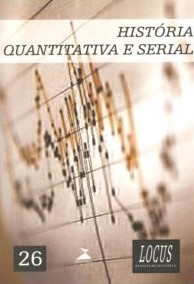Published 2020-08-12
Versions
- 2021-04-28 (2)
- 2020-08-12 (1)
Keywords
- slavery; slave family; Salvador; Bahia; Fazenda Santa Cruz; farinha de mandioca; patronage; exchange rate
How to Cite
Abstract
Valuable insights can be derived from quantitative data, even by non-quantitative historians. This is particularly true because such data often suggest common patterns of behavior not even seen and much less understood at the time, and because such general patterns show the importance of particular deviations. Quantitative information can also lead researchers to ask questions they would not other wise have thought to ask, especially when they are subjected to comparative analysis. In this article I provide examples drawn from my own experiences instudying such matters as the slave family,the number of slaves on vessels that supplied Salvador with food and their role in the Independence war in Bahia, the per-capita consumption of farinha de mandioca in Salvador in the first half of the 19th century, the political culture of patronage during the latter half of the same century and the purchasing power of the mil réis from 1780 to 1860.


